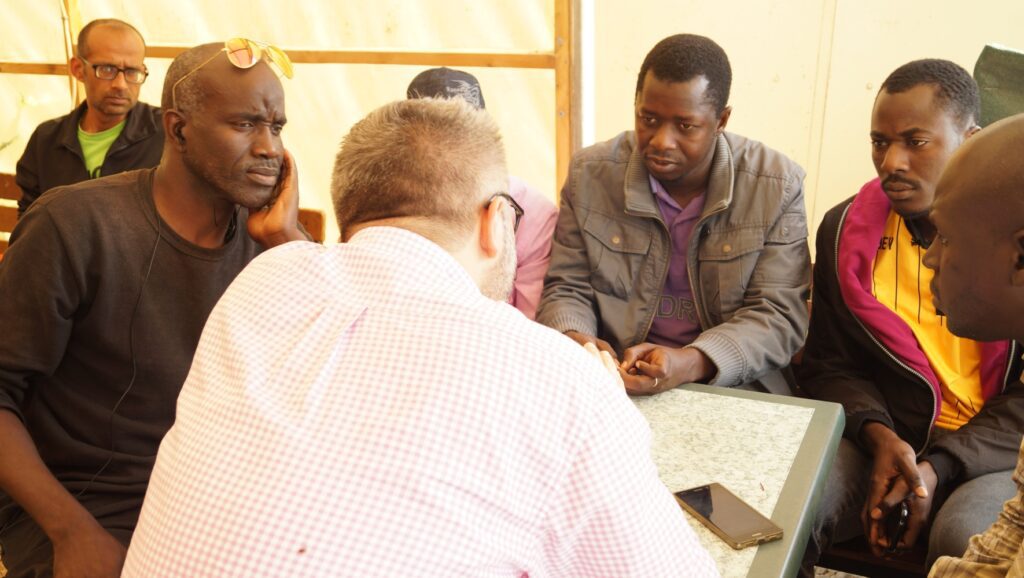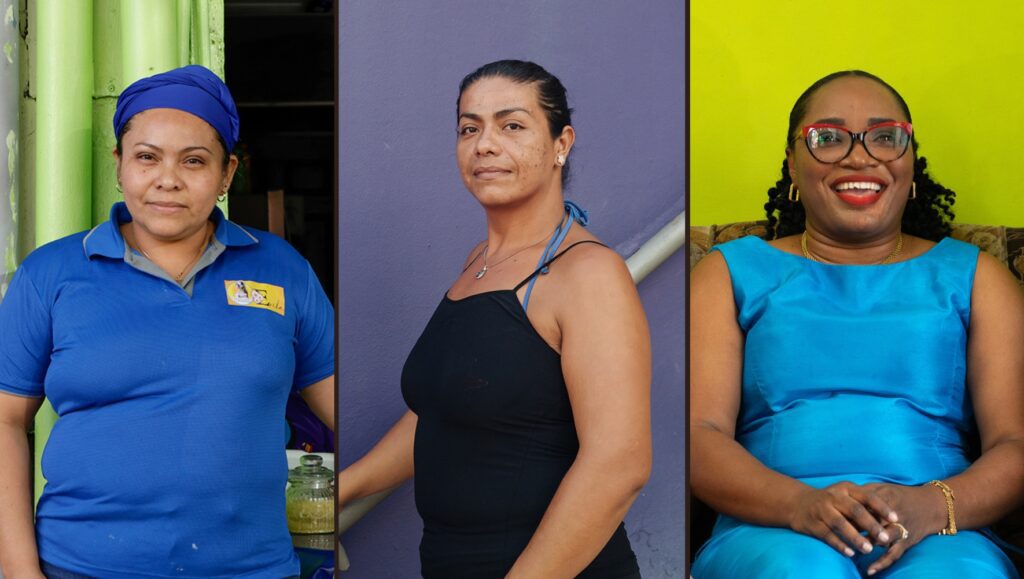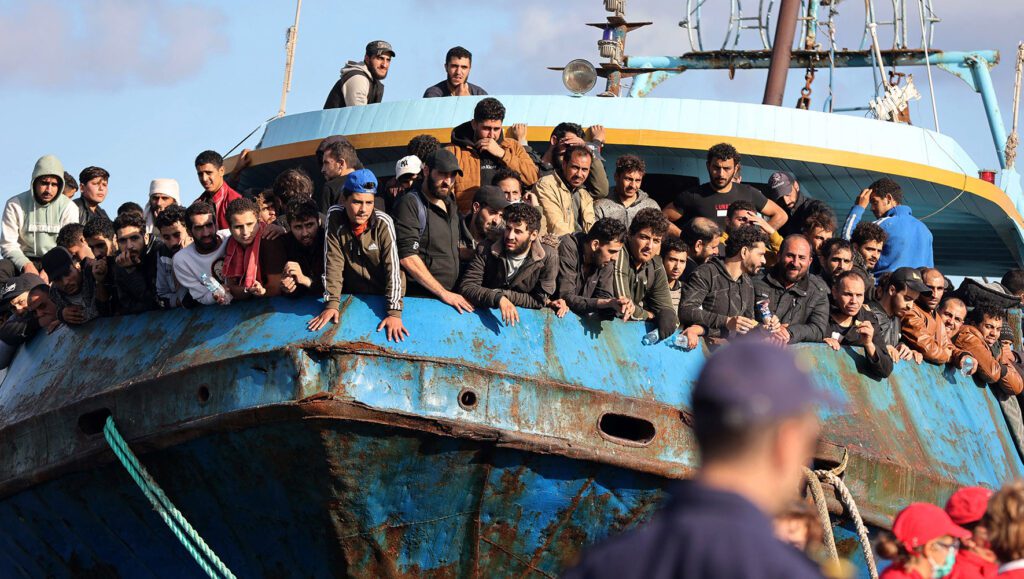On August 1, 2023, the European Court of Human Rights granted interim measures under rule 39 of Rules of the Court to a vulnerable Afghan family of three residing in Lesvos Closed Control Access Center (‘CCAC’) in Greece.
Greece’s continuous misapplication of the “safe third country” concept has placed the family in legal limbo and, therefore, at imminent risk of harm to their physical and mental health, in breach of Articles 2 and 3 of the European Convention on Human Rights (right to life and prohibition of torture and inhuman or degrading treatment, respectively). This has also led to the family enduring inhumane living conditions.
In particular, the mother, who was still pregnant at the time HIAS lodged the application for interim measures, suffers from Hepatitis B. Already in February, the local hospital requested that she be urgently transferred to Athens to access the medical exams and treatment necessary to prevent the potentially irreparable deterioration of her health and the spread of the disease to her baby. However, the authorities refused her transfer because the family’s asylum application had been rejected as inadmissible — on the basis that Türkiye is a safe third country and they should seek asylum there instead.
This refusal was despite the fact that Türkiye has not accepted any readmissions of asylum seekers from Greece since March 2020. This obliges the Greek authorities to assess asylum applications on their merits (for instance, if there is a well-founded fear of return to Afghanistan), as provided for in the European and Greek legislation. The purpose of this obligation is precisely to avoid creating a situation of refugees “in orbit” and to prevent asylum seekers from falling into a legal limbo, in terms of access to both asylum and dignified reception/living conditions, when a third country does not accept them in its territory.
The Afghan family’s father, meanwhile, has been diagnosed with PTSD as a result of his family’s brutal killing by the Taliban, and also suffers from a series of neurological and physical health problems. The daughter of the family, one year old at the time HIAS lodged the request for interim measures, is always sick and shows aggression and signs of resignation syndrome. However, the family cannot access healthcare due to the discontinuation of their social security.
Despite their multiple vulnerabilities, the applicants reside in the camp under the tolerance of the CCAC authorities, in precarious conditions, as they do not have access to nutrition appropriate for their health problems, no longer receive hygiene items such as cleaning products and diapers and have been rendered destitute due to the discontinuation of their cash assistance.
HIAS lawyers applied for suspension of the final rejection of their asylum application in June, which has not been adjudicated to date. Therefore, and in view of the continuous deterioration of the applicants’ health, especially the mother’s, HIAS lodged an application for interim measures with the Strasbourg Court, which decided to request from the Greek authorities:
- the immediate transfer of the applicants to adequate medical treatment in Athens compatible with their state of health,
- the accommodation of the applicants in living conditions that respect human dignity and that take into consideration their multiple vulnerabilities and
- the full access of the applicants to reception conditions appropriate to their state of health, including social security, appropriate nutrition and hygiene items and cash assistance.
HIAS Greece welcomes the Court’s decision but expresses its deep concern for Greece’s continuous rejection of asylum applications on the basis that Türkiye is a safe third country for them despite the lack of any reasonable prospect of readmission. Based on the official statistics, since 2021 to date, more than 10,000 asylum applications have been found inadmissible on the basis that Türkiye is a “safe third country,” in contravention of Greek and European Union (EU) law. This has exposed the rejected applicants to a situation of legal limbo like the one in which HIAS clients have been left.
The legal representation of this case was supported and partially funded by the Dutch Council for Refugees.


